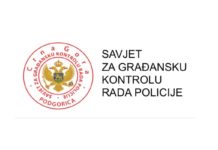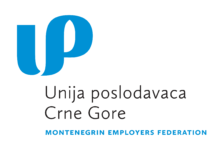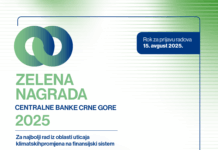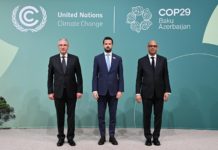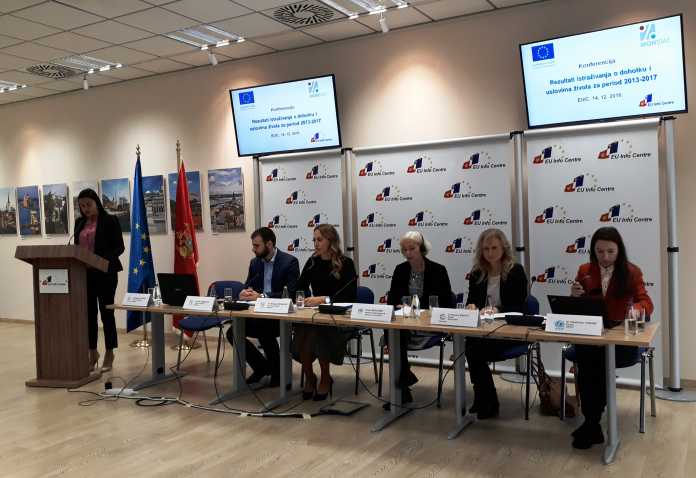Podgorica, (MINA-BUSINESS) – According to Monstat, the relative poverty line in Montenegro, calculated on the basis of income, amounted to €2,100 per person at annual and €175 at monthly level last year.
Director of Monstat Gordana Radojevic has said that the Statistical Office had been keeping track of the absolute poverty line only since 2009, on the basis of the household consumption.
“Today, Monstat published the results of a survey on citizens’ income and living conditions, based on the relative poverty concept, for a period between 2013 and 2017,” Radojevic said at a press conference.
In the European context, poverty threshold or line is at the highest level in the most developed countries.
“In Switzerland, the poverty line is drawn at €26,500 per person a year, while it is at €23,740 in Norway, said Radojevic, adding that it is at the lowest level in Macedonia, with €1,340 and Serbia with €1,530 per person,” said Radojevic.
According to the World Bank (WB), every individual in Montenegro who spends less than US$5.5 a day is poor.
“According to this criterion, 4.4 percent of people are absolutely poor in Montenegro, and they cannot satisfy their basic needs,” said Radojevic.
She concluded that poverty was a multidimensional problem and that is had previously been quantified in relation to the minimum basic consumption needs in Montenegro, which was used as a basis for calculation of the absolute poverty.
She explained that, as the economy had grown in Montenegro, the need arose to approach poverty not only from the point of view of basic or minimum consumption needs, but from the ones that are most frequent in the developed countries.
“Therefore, Monstat started to work on a survey in partnership with Eurostat allowing us to look at the citizens’ financial situation the same way and on the basis of same principles as in all European Union member states,” said Radojevic.
According to her, this was the reason for introduction of the relative poverty concept, which does not cover the satisfaction of basic needs only, but also those that are considered to be acceptable and usual in the society an individual lives in.
The United Nations Resident Coordinator in Montenegro, Fiona Mc Cluney, said that the development of policies and programmes was very important for future generations.
“With this relative poverty line approach prepared, the Government’s interventions could be better and focused on data-based activities,” said Mc Cluney.
She said that the data on who is poor could help create better policies and strategies for poverty reduction. Longer version of article is available on a link MINA ENGLISH SERVIS



